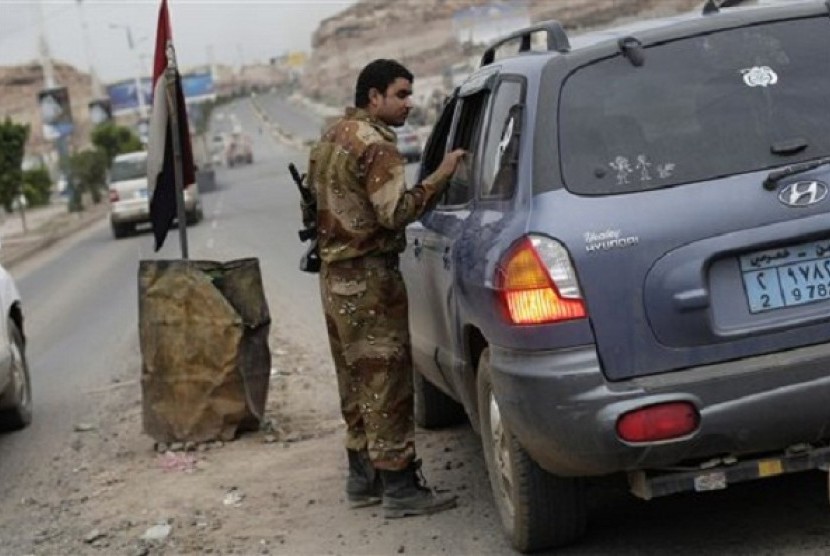REPUBLIKA.CO.ID, SANAA -- The UN Development Program (UNDP) said Tuesday that Yemen continues to suffer from the impact of the 2011 crisis and previous conflicts, including the wars between the army and the Houthi rebels.
In a report titled "multidimensional livelihoods assessment in conflict areas in Yemen," it said that after the 2011 crisis the number of the people affected by conflicts increased to around 94 percent from 29 percent in 2010.
Livelihoods have deteriorated since conflicts directly affected public and private assets, pushing the poverty rate to around 54 percent in 2011 and leaving around 60 percent of the country's population (estimated at more than 25 million) without food security in 2013, according to the report.
Naresh Singh, the author of the report, said mounting conflicts due to the presence of the Houthi group, al-Qaida, the Southern Movement and others have led to the worsening livelihoods and the soaring poverty and unemployment rates.
"The number of affected from conflicts increased due to the lack of funds. The interventions in conflict areas at this time are very minimal and have not even come close to minimum level to make improvements," Singh said.
He elaborated that the UN has prepared a comprehensive analysis about all types of conflicts in Yemen, including those related to the al-Qaida, the Southern Movement, the Houthis and unruly tribes as part of its support to help the Yemeni government and international agencies to draft better priorities and policies.
"Conflicts are mounting and plaguing the entire country. No one immune," he said.
Challenges facing government
Yemen's Industry and Trade Minister Saad Al-Deen bin Talib, who attended the report launch ceremony, said the Yemeni government has been unable to address the impact of conflicts as it has been faced with financial and logistic challenges.
"Conflicts and security problems have affected all sectors and reflected in the slow social development," he said.
In his remarks at the ceremony, bin Talib said: "Security concerns are reflected in the fact that the forces protecting energy projects receive 2 million U.S. dollars a month. Such a sum just reveals indirect the impact of conflicts on the livelihoods in the country."
Meanwhile, a senior official said the nation's development is almost frozen. "The planning ministry in 2012 prepared a two-year transitional development program but only one item of its content has been achieved, which was the dialogue (between the government and the opposition)," said Suleiman Al-Qotabry, assistant deputy minister of the planning for development programs.
"Donors have promised aid; a tinny sum of their pledges has been released so far," he said, pointing out that "Yemen is in need of key projects that can serve social and economic development."
"We always affirm that security concerns are behind weak investment climate and the suspension of governmental projects, which in turn lead to a delay in the release of foreign aid," Al- Qotabry said.
UNDP report
The report assessed the impact of conflicts on livelihoods at household and community levels in the governorates of Amran, Hajja, Abyan and Taiz. Poverty in these governorates, in some cases, reaches 90 percent, it said, while adding that social complications have led to the fact that around 80 percent of Yemen 's conflict are over land and water.
One of the key findings of the report is that weak social and developmental environments make it easy for the al-Qaida group to recruit many young people and gain popular support.


